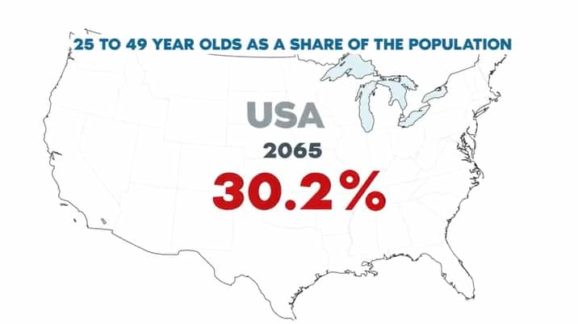Red Tape Discourages Entrepreneurs, CEI Expert Explains in Fraser Institute Book

 Today, the Fraser Institute, an independent, non-partisan Canadian public policy think-tank, released a new book on worldwide barriers to entrepreneurship, Demographics and Entrepreneurship: Mitigating the Effects of an Aging Population. In the book, CEI expert Wayne Crews offers a chapter that examines regulatory barriers to entrepreneurship—a concern in countries around the world.
Today, the Fraser Institute, an independent, non-partisan Canadian public policy think-tank, released a new book on worldwide barriers to entrepreneurship, Demographics and Entrepreneurship: Mitigating the Effects of an Aging Population. In the book, CEI expert Wayne Crews offers a chapter that examines regulatory barriers to entrepreneurship—a concern in countries around the world.
“If getting things done requires too many steps, there will be fewer entrepreneurs,” Crews explains.
For policy makers, helping create opportunity for people to innovate and improve their lives means repealing or amending laws that prop up counterproductive regulations, curtailing regulatory policies that weren’t authorized by elected legislative bodies, and better tracking and reporting of regulatory burdens.
It means taking a hard look at whether all the procedures, taxes, labor regulations, safety and health requirements, and environment-related restrictions and requirements are doing more harm than good.
There are other important considerations:
Institutional support – Do laws and property right protections already in place enable and advance liberty and innovation or do they need strengthening?
Rent-seeking – That’s all the subsidies, grants, or tariff protections that companies lobby for as a way to suppress competition and use government for narrow economic gain. Those policies must be ended.
Misconceptions about regulation – Regulation sometimes benefits from the flawed presumption that it just “works.” Policy makers must be open to the reality faced by too many entrepreneurs—that regulation brings unintended consequences that undermine people’s freedom, resources, and motivation to try out new ideas and ventures.
The role of the private sector in defending economic liberty – Are there enough businesses and entrepreneurs doing their part to stand up for the freedom to innovate and push back against opposition and opportunism? “Business needs to realize it is under assault,” as Crews bluntly puts it. Capitalism needs capitalists defending it, taking the moral high ground, and get that message out there through communication, marketing, and persuasion.
A few particularly interesting takeaways include:
Africa is bursting with entrepreneurial spirit. More working age people in Africa (3/4) than Europe (3/5) consider entrepreneurship a good career choice, as measured by Global Entrepreneurship Monitor survey published in 2017.
Employees are important to innovation. And such “Entrepreneurial Employee Activity” is highest in North America and Europe.
Nations nowadays seek to do better at competing with one another on fostering an entrepreneurial environment. The World Bank “Doing Business” project recorded over 2,900 regulatory reforms across 186 economics since 2004, with Europe and Central Asia consistently scoring the highest average number of reforms per economy.
The global environment for entrepreneurship is mixed. While OECD high-income economies have the most business friendly regulatory systems on average (followed by Europe and Central Asia), the World Bank says there’s been a slowdown.
Here in the U.S., the technology sector has remained comparatively less regulated, allowing greater entrepreneurship compared to other sectors like pharmaceuticals, aviation, construction, consumer banking, and medical devices.
Download the book free of charge at Fraserinstitute.org.